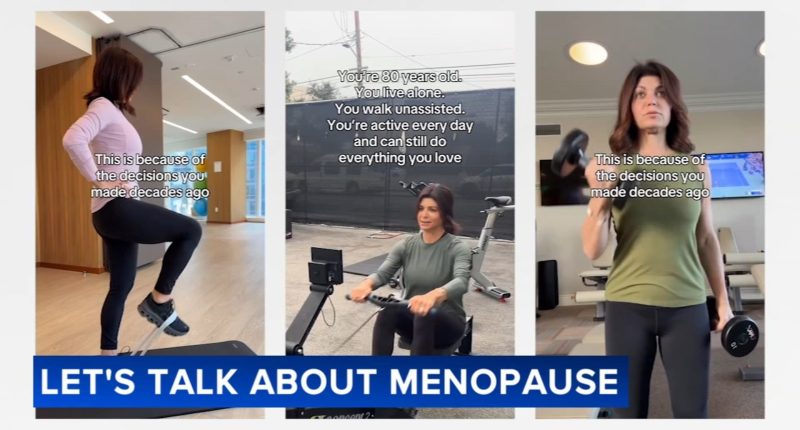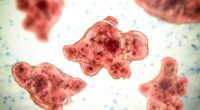Share this @internewscast.com
CHICAGO (WLS) — Discussing menopause openly has been avoided for generations, despite being a crucial aspect of women’s health. It’s perplexing that this topic has been considered taboo, as nearly half of the population undergoes it, facing numerous challenges along the way.
But social media has opened the door to discussion and the science of how to navigate this midlife transition.
ABC7 Chicago is now streaming 24/7. Click here to watch
There are thirty-four symptoms associated with perimenopause. Author and activist Tamsen Fadal was surprised to find that sharing these symptoms on social media would significantly change her professional path.
“I had people go, ‘Oh my Gosh! Me too! I have this; I have that. I can’t believe it, nobody has talked to me about it,'” Fadal, said.
The former news anchor was navigating this midlife transition without a whole lot of help.
“The most unfortunate scenario is when a woman visits her doctor and is told dismissively, ‘It’s just menopause, any questions?’ or ‘This is something that simply happens with aging.'”
But in many cases doctors are ill-equipped to answer those questions.
UIC’s Dr. Pauline Maki has spent decades studying the effects of menopause on the brain and body.
“The challenge is that we have failed to educate more than two decades of providers including OB-GYNs,” Dr. Maki said. “Do you know that 80 percent of graduating OB-GYN residents say they feel ‘fairly comfortable’ talking about menopause and medical students get less than one hour of training?”
So women are seeking advice elsewhere. Tamsen left her decades-long career in news to write a book – drawing on every expert she could find to give helpful guidance to women in midlife.
Dr. Maki has traded in her lab coat for a guest seat on the set of Good Morning America.
“I went from being that obscure person who studied that hormonal thing in the corner and put people into brain-imaging machines, to somebody who is on the world stage now advocating for it,” Dr. Maki said.
And that advocacy is pushing women into action.
“One thing we know about menopause is, hey, we’re aging and our hearts are aging and our brains are aging,” Dr. Maki said. “So, we need to adopt new habits, new lifestyle practices, new nutritional habits.”
That is Dr. Kelsey Gabel’s area of expertise.
“Even something as simple as eating more vegetables or doing some sort of resistance training seems to lessen the symptoms of both cognitive things…as well as the frequency and intensity of hot flashes and night sweats,” Dr. Gabel said.
And in this age of online community, you don’t have to do it alone.
“When a woman comes up to me and says, ‘Hey, I brought this into the doctor’s office and I got on hormones, or I have a new protocol now, It feels really good,'” Fadal said.
One very important note from all of the women you saw in this story. Social media is a wonderful place to connect with others to help you better understand what your body is going through and to feel less alone. But medical advice and treatments must always come from a licensed health provider.
Dr. Maki encourages women to log onto menopause.org to find a provider. You can plug in your zip code for a list of providers in your area who are certified in care for women in this stage of life.
And there’s more. Thursday, Tanja is going to introduce you to two Chicago women who are shining examples of ageless beauty. You’ll learn more about how they have become influencers for one of the top beauty brands in the country.
Copyright © 2025 WLS-TV. All Rights Reserved.

















